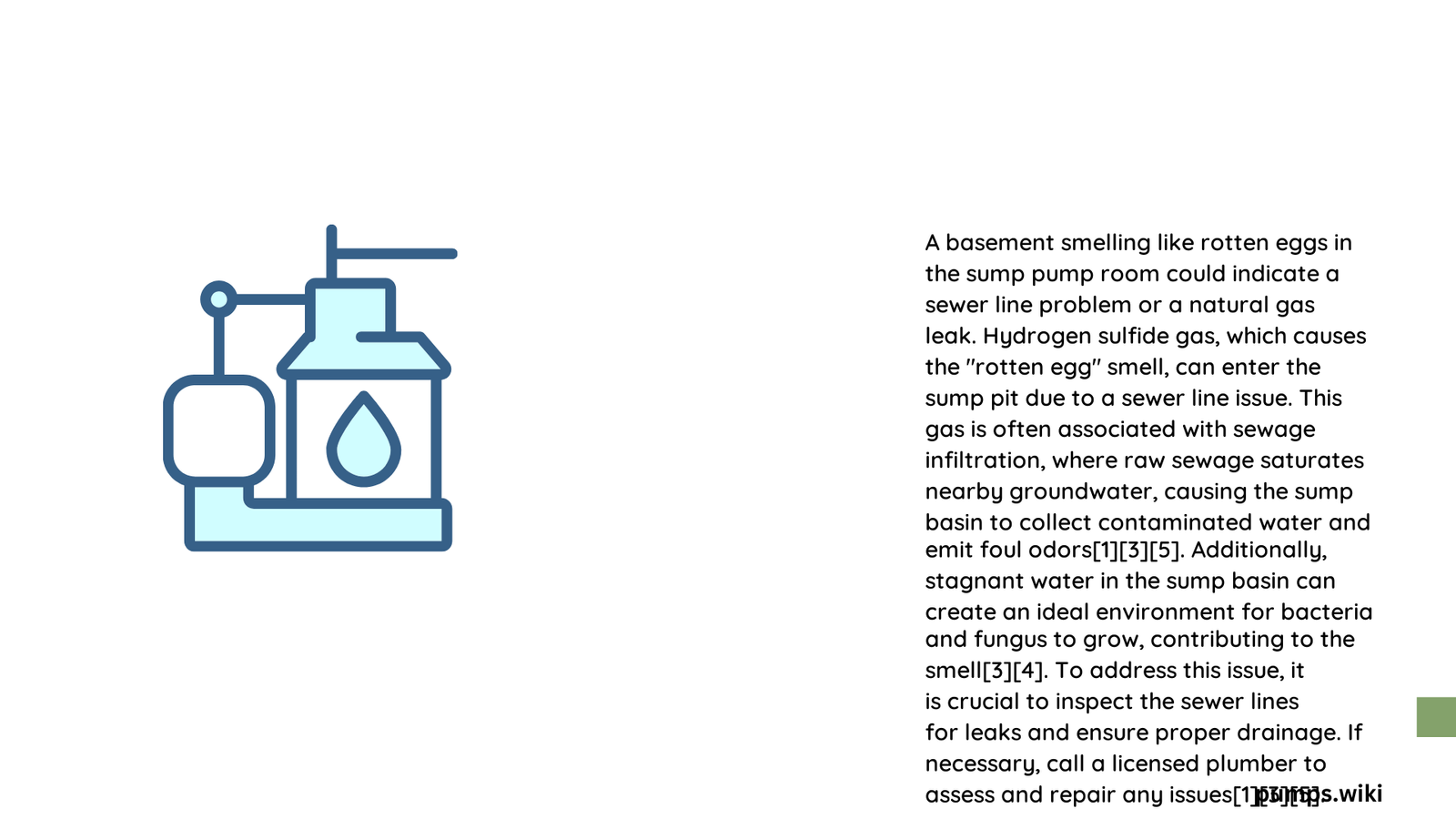A persistent rotten egg smell in your sump pump room can be alarming and potentially indicative of serious underlying issues. This pungent odor, typically caused by hydrogen sulfide gas, signals potential problems with water quality, bacterial growth, or system malfunction that require immediate attention and strategic intervention to protect your home’s environmental health and structural integrity.
What Causes Rotten Egg Smell in Basement Sump Pump Area?
How Does Hydrogen Sulfide Develop in Sump Pump Systems?
Hydrogen sulfide gas emerges through several complex mechanisms within sump pump environments:
- Bacterial Interactions
- Sulfur-reducing bacteria thrive in oxygen-depleted water
- Metabolize sulfur compounds, producing distinctive rotten egg odor
-
Proliferate in stagnant or poorly maintained sump basins
-
Water Chemistry Factors
- High mineral content in groundwater
- Presence of sulfate compounds
- Anaerobic decomposition processes
What Are the Primary Sources of Sulfur Contamination?
| Source | Potential Impact | Severity |
|---|---|---|
| Groundwater | Natural sulfur minerals | Low-Moderate |
| Sewer Line Breach | Direct contamination | High |
| Organic Debris | Bacterial growth | Moderate |
| Well Water | Sulfate concentration | Variable |
How Can Homeowners Diagnose Sump Pump Odor Issues?
Diagnostic Checklist:
– [ ] Check water level in sump basin
– [ ] Inspect for visible debris or sediment
– [ ] Evaluate pump functionality
– [ ] Test water quality
– [ ] Examine surrounding drainage systems
What Professional Solutions Resolve Rotten Egg Smell?
Professional interventions typically involve:
- Comprehensive system cleaning
- Bacterial treatment
- Water quality assessment
- Potential sewer line inspection
- Advanced filtration installation
Can DIY Methods Effectively Eliminate Sump Pump Odors?
Homeowners can implement several strategies:
- Use chlorine-based cleaning solutions
- Maintain consistent water levels
- Install ventilation systems
- Regular basin scrubbing
- Apply enzymatic bacterial treatments
What Are Long-Term Prevention Strategies?
Preventative Maintenance Plan:
– Quarterly professional inspections
– Annual comprehensive system cleaning
– Install moisture barriers
– Monitor groundwater conditions
– Upgrade filtration systems
What Potential Health Risks Exist?
Prolonged hydrogen sulfide exposure can cause:
– Respiratory irritation
– Headaches
– Potential neurological complications
– Increased risk of respiratory infections
Cost Considerations for Odor Remediation
Estimated Investment Range:
– Basic cleaning: $100 – $300
– Professional inspection: $200 – $500
– Complete system rehabilitation: $500 – $2,000
When Should Professionals Be Consulted?
Immediate professional consultation is recommended if:
– Odor persists after cleaning
– Visible contamination exists
– Water quality seems compromised
– Structural damage is suspected
Technical Insights for Advanced Understanding
Hydrogen sulfide formation represents a complex biochemical process involving:
– Anaerobic bacterial metabolism
– Sulfur compound reduction
– Environmental pH variations
– Organic matter decomposition
Conclusion

Understanding and addressing basement sump pump odors requires systematic approach, combining scientific knowledge, proactive maintenance, and strategic interventions.
